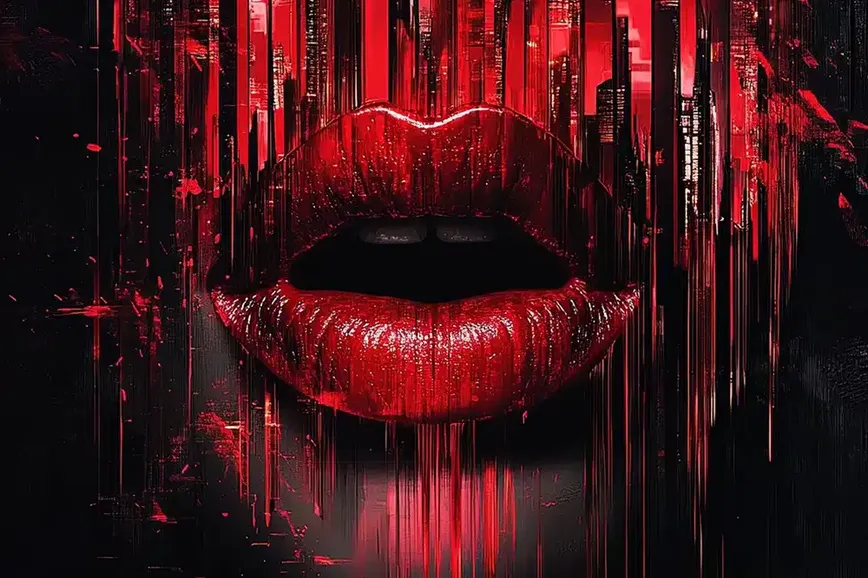
The Seductive Shift: How Pornification Is Reshaping Our Culture

From Shock to Normalcy: The Rise of Digital Exhibitionism
Hey there, darlings, let’s talk about a spicy little trend that’s taken over our screens. When a fresh-faced influencer turned 18 and launched an OnlyFans account, she didn’t just dip her toes into the world of adult content - she dove in headfirst, shattering records with a cool $1 million in just one day. The internet gasped, clutched its pearls for a hot minute, and then… moved on. Just another day in a world desensitized to shock.
Scroll through your feeds, and it’s impossible to miss the curated skin, the staged ‘realness,’ the endless parade of people baring it all - both literally and figuratively. In this attention economy, where subtlety gets you nowhere and boldness cashes in, influencers have become our modern-day high priests of exposure. It’s not just about sex; it’s about spectacle, and honey, we’re all tuned in.
Popular culture seems to be flirting hard with the vibe of pornography, turning every moment into a performance. Whether it’s a thirst trap on TikTok or a trauma dump on YouTube, the algorithm has erased the line between authenticity and showmanship. We’re not just watching - we’re consuming, and it’s a buffet of oversharing.
The Loss of Mystery: When Everything Becomes Content
Let’s take a step back, shall we? Over a decade ago, some of us worried that the mainstream was slipping into the margins, that what used to be edgy was becoming the default. It wasn’t about shaming sex or pleasure - oh no, we’re all for a little fun - but about mourning the disappearance of mystery. When intimacy turns into just another piece of content, what’s left that feels sacred?
Platforms like OnlyFans have made monetizing personal moments not just acceptable, but empowering. Meanwhile, emotional oversharing - think pain packaged for likes or confessions crafted for clicks - has become its own kind of currency. The personal isn’t political anymore; it’s promotional, and the self? Just another brand to market.
“We’ve traded privacy for visibility, and in doing so, we’ve lost something deeply human - the space to keep parts of ourselves just for us,” muses a cultural critic reflecting on this shift.
Mainstream Media’s Sultry Mirror: Reflecting Our Obsession
Now, let’s turn our gaze to the screen - the big one, that is. Mainstream media isn’t just observing this cultural shift; it’s fanning the flames. Take HBO’s Euphoria (2019-), a teen drama that’s as celebrated as it is critiqued for glamorizing sex and trauma among the young and restless. Then there’s Lily-Rose Depp in The Idol (2023), a show that teeters between satire and steamy spectacle, sparking debates not for depth, but for pure shock value.
Reality TV, once scoffed at as lowbrow, now holds up a mirror to our obsession with visibility. It’s survival of the most exposed, where privacy is the ultimate sin. And don’t even get me started on celebrity memoirs dropping before their subjects have truly lived, or ads using childlike allure to sell high fashion - what does that say about where we’re at?
Even bestseller lists are getting in on the action with ‘mommy porn’ dominating the charts. Teenage influencers monetize every awkward phase of growing up, and intimacy itself feels like it’s been outsourced to our screens. When everything is out there, what’s left to surprise us?
Searching for Meaning: Is There Room for the Sacred?
Here’s the twist, though - in the midst of all this overstimulation, there’s a whisper of something deeper. Shows like The Leftovers (2014-17) and Save Me (2018-22) dare to flirt with the spiritual, hinting at the ineffable. Films such as Paul Schrader’s First Reformed (2017) and Terrence Malick’s The Tree of Life (2011) tackle grief and grace without a smirk, reminding us there’s still room for the unseen.
Could it be that after decades of laying it all bare, we’re starting to crave something more? Maybe we’re remembering how to yearn for connection beyond the click, for a mystery that can’t be hashtagged. In a world addicted to transparency - as philosopher Byung-Chul Han warned in The Transparency Society (2015) - losing privacy means losing meaning.
So, what’s the play here, loves? We don’t need to turn into puritans, but maybe it’s time to become pilgrims of a sort - chasing transcendence over titillation, reverence over revelation. In an age of relentless visibility, perhaps the ultimate rebellion is to keep a little something just for ourselves.












